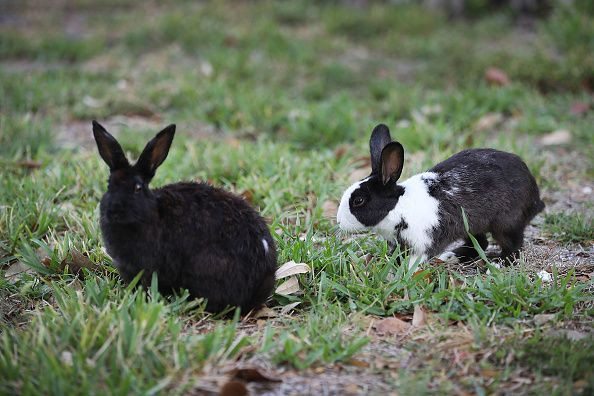US Pet Owners Urged To Prepare For Ebola-Like Bunny Virus

KEY POINTS
- A deadly Ebola-like rabbit virus has been spreading in the United States
- Often, the only signs of the disease are sudden death and a bloody nose
- The vaccine for the virus is not yet available in the country
- Pet owners are being urged to take the necessary precautions to protect their pets
An Ebola-like rabbit virus is spreading in both wild and pet rabbits in the United States. Veterinarians are now urging pet owners across the country to be prepared and to take the necessary precautions.
Rabbit hemorrhagic disease (RHDV2) is a fatal, Ebola-like disease that is believed to have originated in wild European rabbits. Since the first diagnosis of the virus in rabbits in China in 1984, the virus has since spread to various countries.
In the U.S., it is classified as a foreign animal disease but, since 2018, there have been several cases of RHDV2 in the country. In February, the virus was detected in a rabbit in New York City and another case was confirmed in New Mexico a month later. The virus has since spread in other rabbits in New Mexico and other states including Colorado, Texas, Arizona, and California.
It is a highly contagious virus that can survive for long periods of time, even in extreme temperatures. As such, there is growing concern among veterinarians that the virus may be established in the country by 2021.
"Once the virus gets into the wild-rabbit population, there's no way to stop it from rapidly spreading and becoming endemic," veterinarian Dr. Jennifer Graham from the Henry and Lois Foster Hospital for Small Animals said in a news release issued by Tufts University. "This disease is a little bit like COVID-19 in that the virus can be spread by carriers with no symptoms."
Although some infected rabbits may exhibit symptoms such as fever, hesitance to eat or respiratory issues, often, the rabbits just suddenly die, with their noses blood-stained from internal bleeding.
Even if the virus is exclusive to rabbits, meaning that it cannot be passed to humans or other animal species, pet owners are being urged to take extra care, especially since the vaccine for the virus is not yet available in the country.
Some recommended measures include avoiding pet rabbits' contact with other rabbits and keeping them indoors. It is also important not to let pet rabbits graze or wander outdoors and, to refrain from feeding them native grass from an infected area.
Since the virus can survive and be spread by sticking to shoes, clothes or other surfaces, it is important for pet owners to keep outdoor shoes outside or away from the places where the rabbits can reach them. Thorough hand washing before contact with a pet rabbit or before preparing their meals is also important.
"We've tried to keep this virus out of the country, but there have been sporadic outbreaks in domestic rabbits," Graham said. "For example, there was one situation where a woman working in a restaurant that served rabbit brought the virus home to her own rabbits."
Anyone who finds a dead rabbit, especially in an area where the disease had been confirmed, must not touch the carcass. Instead, it is important to contact a local veterinarian as well as state or federal animal health officials.
So far, there is no treatment for RHDV2, so taking preventive measures is vital to keeping pet rabbits safe and healthy.
"(I)t is up to you as the owner to protect your rabbits by practicing good biosecurity," the United States Department of Agriculture said. "Biosecurity means taking simple steps every day to keep germs away from your animals. These actions will significantly reduce the chance of RHDV2 or other contagious diseases affecting your rabbits."
© Copyright IBTimes 2025. All rights reserved.






















